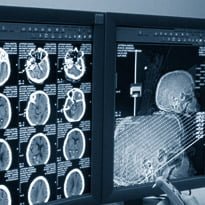Trusts urged to think PACS/RIS 24/7
- 25 April 2013

Trusts need to be thinking about future requirements for a 24/7 NHS when they plan their PACS and RIS procurements, according to Erika Denton, national clinical director for diagnostics, NHS England.
Denton spoke to EHI Imaging Informatics at an NHS Supply Chain PACS and RIS conference earlier this week.
She argued that government plans to introduce NHS seven day a week working, coupled with the increasing demands of an ageing population, would put greater pressure on radiology services.
As a result, she said, trusts need to be looking at the rate of increase in workload in imaging. “Nobody’s going to be doing less radiology next year than they are this year.”
This has implications for their requirements when planning the purchase imaging systems, she added.
“In terms of data storage, of image-sharing with their neighbours, of network services and how they are going to operate across consortia or across network boundaries, how do they need their informatics platform to support those ways of working?” she asked.
Trusts should “not allow their informatics platform to tell them what they can do, but they should say what they want to do and then ask suppliers to provide systems that support their working,” she said.
The move to seven-day, 24-hour working would bring particular challenges, she added. The likely increase in demand for mobile working would require governance structures to be put in place at both a central and local level.
“I have some concerns around reporting images that require higher resolution viewing options, and capability on some mobile portable devices. There are also patient security and safety issues about viewing confidential data in public places.”
In many trusts, said Denton, radiology departments were already well-equipped for seven-day working. The difficulty is that the ability of radiology to provide a seven-day service is only of value if the same response speed can be matched elsewhere in the service.
“If you take a group of imaging teams and they move to seven-day working but they’re acutely aware that they’re delivering reports on a Sunday and there’s no acute team there to respond to them or make a decision – that’s ultimately demoralising.”
As well as dealing with technical challenges, said Denton, imaging informatics faces structural challenges as the result of the re-organisation of the NHS in England.
“Our hierarchical infrastructure, with strategic health authorities with chief information officers, has gone, and we haven’t filled that gap of informatics leadership as yet.
"We had quite a dependency on our CIOs for regional informatics leadership, and that is not present in the current structures, so I think that is going to be a big challenge.”




